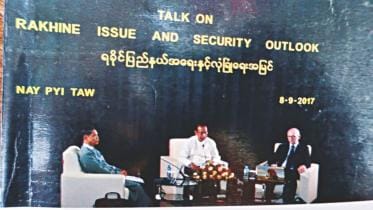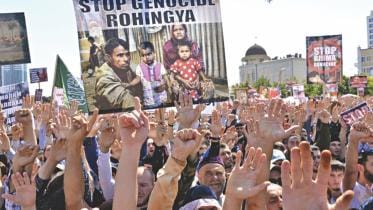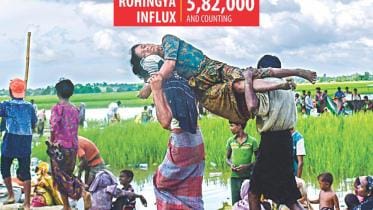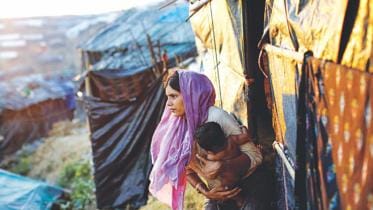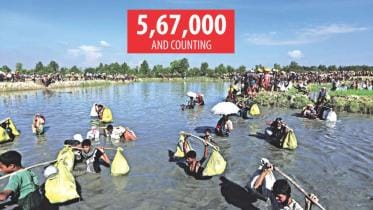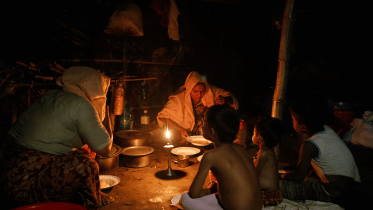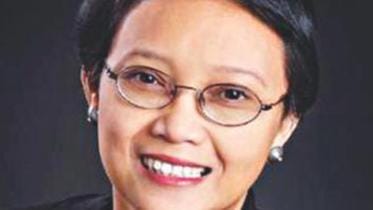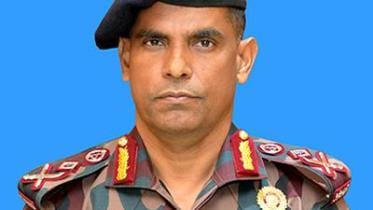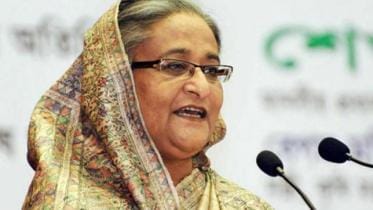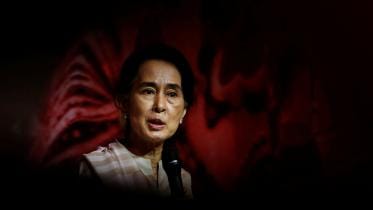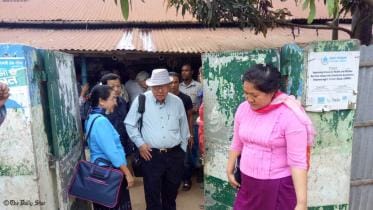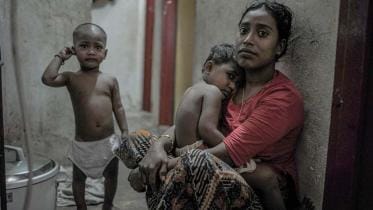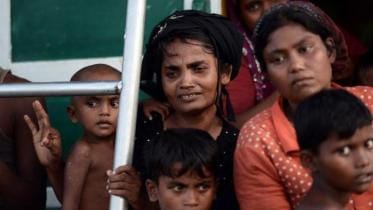Rohingya issues
Oxford's Neo-Orientalism
Slowly but surely the world is coming to terms with the gruesome reality of Burma's genocide of the Rohingyas. As early as 2015 London Queen Mary College's State Crimes Initiative alerted the international community of the ongoing genocide in Arakan. Hardly anyone paid heed to that ominous warning.
27 March 2018, 18:00 PM
Call it genocide
The UN calls the Myanmar army's aggression against the Rohingya “ethnic cleansing”. “Ethnic cleansing” is a term invented by Slobodan Milosevic. It's a euphemism for forced displacement and genocide. It's an insidious term because there is no international treaty law against it, whereas there are international laws against forced displacement and genocide.
19 November 2017, 18:00 PM
Another UN report shelved
Only a few weeks after it was revealed that the UN had suppressed a report highly critical of the conditions in Rakhine State, we find out that a UN World Food Programme report on hunger and starvation of the Rohingyas had also been shelved.
18 October 2017, 18:00 PM
The realities of Rohingya refugees - What do we do next?
In the last few days I had the opportunity to visit the Rohingya camps in Ukhia near the Myanmar border to observe the conditions of the refugees as well as the environment of the area. I will share some very preliminary observations on the situation.
17 October 2017, 18:00 PM
Stop the Rohingya influx
Some 30,000 Rohingyas have streamed into Bangladesh in the latest outflow of people from Myanmar into Bangladesh. As the numbers increase exponentially, so do the casualties.
17 October 2017, 18:00 PM
Food security for Rohingyas is beyond blanket assistance
October 16 marks World Food Day, an annual event which this year focuses on food security, conflict, displacement and migration. To date, about a million Rohingyas have fled Rakhine State of Myanmar, over half of them since August 25 this year.
15 October 2017, 18:00 PM
Indonesian foreign minister to visit Dhaka and discuss Rohingya issue
Indonesia's Foreign Minister Retno Marsudi will arrive in Dhaka on Tuesday to discuss with Bangladesh government officials the current persecution on the Rohingya Muslim minority in Myanmar's western state of Rakhine.
3 September 2017, 13:15 PM
Showing humanitarian attitudes to Rohingyas: BGB DG
Border Guard Bangladesh (BGB) members are showing humanitarian attitudes to the Rohingyas who fled from Myanmar fearing persecution, chief of the paramilitary force said today.
28 August 2017, 12:59 PM
PM hopes to resolve Rohingya issues bilaterally
Prime Minister Sheikh Hasina reiterates her call to Myanmar authorities to take back its nationals from Bangladesh and hopes that the two countries would be able to resolve the problem through bilateral discussions.
4 July 2017, 11:41 AM
Suu Kyi denies ethnic cleansing of Rohingya Muslims
Myanmar leader Aung San Suu Kyi says ethnic cleansing is too strong a term to describe what is happening in the Muslim-majority Rakhine region.
6 April 2017, 04:24 AM
‘Myanmar working to resolve Rohingya crisis’
Myanmar government is trying to resolve the crisis over Rohingya issue, according to a top commission formed by the state’s Counselor Aung San Suu Kyi.
Zaw Myint Pe, member secretary of the 10-member body, made the comment while visiting Rohingya camps in Bangladesh to learn of their status first-hand.
20 March 2017, 05:37 AM
Regional Governance Matters
The majority of the Asian states rejected the International Law on Refugees, established under the 1951 Convention relating to the Status of Refugees and the 1967 Protocol, claiming it to be irrelevant to the Asian refugee experiences.
24 June 2015, 18:00 PM
Rape–another crime of human traffickers at sea
An investigative report by this paper has unraveled the horrifying sexual abuse of Rohingya women while they make their perilous trips at sea.
11 June 2015, 18:00 PM
What language do "boat people" speak?
I think a euphemism is a kind of lie, and the lies peoples and countries tell themselves are revealing. Describing Rohingya migrants as “boat people” is disturbing and unacceptable to me.
10 June 2015, 18:00 PM
Citizenship for Rohingyas
The recent tragedy of hundreds of boat people floating in the wilderness of the sea without food and other basic amenities has drawn the world's attention to the protracted suffering of the Rohingyas.
3 June 2015, 18:00 PM
The sighs of ancestors rock migrant boats
AS many as 8,000 refugees have been adrift in the Andaman Sea lately, some of them stranded for more than two months.
28 May 2015, 18:00 PM
The sickness of illegal immigrants
Bangladesh relies on its workers' remittances but is seemingly happy to turn a blind eye as to why half a million of them choose to leave the country every year and how the nearly eight million currently abroad are treated.
27 May 2015, 18:00 PM
Myanmar must recognise Rohingyas as its citizens
In the wake of a much publicised international humanitarian crisis relating to boatpeople, thousands of whom are languishing in the high seas, Myanmar's reluctance to attend Thailand's May 29 regional summit to solve the issue, is disconcerting.
19 May 2015, 18:00 PM
Floating coffins
Since 2012, thousands of Rohingyas died in Arakan, and more than 150,000 people have been herded in the so-called Internally Displaced People Camps.
19 May 2015, 18:00 PM
No place to belong
THAI authorities detained 76 migrants including six suspected Rohingyas in Thailand's southern Nakhon Si Thammarat province on Monday.
1 April 2015, 18:00 PM



